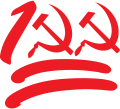reading a bit about past revolutions (mostly cuba, russia, china and vietnam) It seems to me like the peasantry was at least somewhat involved in each of these movements, with sympathetic peasants providing material support to proletarian revolutionary movements. as far as I understood it, this seemed to be particularly present in the chinese new democratic revolutionary government which sought to form an alliance of the four progressive classes under the ideological leadership of the proletariat, the peasantry being one of these four classes.
another thought is, does the peasant class still exist in the imperial core? I have farmers In my family but I'm not sure if they would qualify as peasantry, as while they own the land they work (and work it themselves, not employing workers afaik), they are entirely dependent on external factors to maintain their lifestyle (having to buy seeds, pesticides, fertilizer, fuel for equipment) rather than being relatively independent from the capitalist class. maybe I misunderstand the definition of peasant, but modern farmers in the imperial core seem to more closely fit the description of petty bourgeoisie, and this seems like a key difference between them and the peasant class that existed at the time of past proletarian revolutions.
this also brings up another couple questions: first, would a proletarian revolution in the imperial core today be able to rely on such a class of farmers (weather they qualify as peasant of petty bourgeoisie) to be sympathetic or does historical precedent make it seem more likely they would a reactionary opponent to progress? second, If the proletariat cannot rely on the support of any other class, how would revolutionary strategy differ from previous revolutionary movements?
sorry in advance if these are dumb questions.
So strictly speaking a peasant has a relationship to the means of production which is direct, so it's very similar to that of the petit-bourgeoisie under capitalism in that respect.
A peasant would work the land to produce most of what they need and they would trade or sell the excess to be able to access other things (think like healthcare, religious objects/texts, potentially being able to send their child to school depending on the time/place etc.)
Peasants definitely still existed in China and Russia during their revolutions and it still existed in Vietnam but to what extent I am uncertain. I know for a fact that you had Hmong in Sa Pa who were peasants (and who were very important to the Vietnamese liberation efforts) but as for the more urban areas of Vietnam idk. As for Cuba, same deal - I don't know enough to be able to say definitively.
Also note that these lines are perhaps blurrier than we might like them to be. All things that exist are inherently dialectical and it's not like a new calendar year started and suddenly all the peasant masses dropped their pitchforks and took up factory jobs; this was a gradual process and it's not out of the realms of possibility that a person may have farmed the land and then on the side worked as a prole seasonally when the land was fallow.
What this means is that it's going to be a bit more difficult on the ground to determine classes than it is to talk about them in a sort of essentialised way like Marx does; he was writing to expound his analysis of capitalism and his thesis, he wasn't developing a phylogenetic tree of classes and determining where each individual neatly fit within it.
does the peasant class still exist in the imperial core?
Actually, yes. But in the absolute margins when we're talking about western countries. There are still a few people here and there who will directly work the land and trade what they produce etc. but that's extremely rare and it exists in the tiniest way that it is not of any relevance to us today.
The people who you mention are almost certainly petit-bourgeoisie, although there are others who are bourgeois too but that's definitely one rung up the economic ladder.
this also brings up another couple questions: first, would a proletarian revolution in the imperial core today be able to rely on such a class of farmers (weather they qualify as peasant of petty bourgeoisie) to be sympathetic or does historical precedent make it seem more likely they would a reactionary opponent to progress?
It depends on the conditions. In India many farmers are extremely progressive or even radical. They're going to be one of the main groups to watch in that country, aside from the parties and the Naxalites.
In my country? Most of them are reactionary as fuck. They're going to be the worst sort of counterrevolutionaries when the revolution comes here.
second, If the proletariat cannot rely on the support of any other class, how would revolutionary strategy differ from previous revolutionary movements?
Well, the good news is that in most countries the masses have been entirely proletarianised. A century ago, give or take, in the backwards countries like Russia and China they needed the peasants to make up a large enough revolutionary base. In my country and almost certainly in yours too, the overwhelming majority of people are proles and that means that we do not need to unify with other classes to get the numbers necessary to bring about a revolution.
Note here that I'm skirting around the discussion on Mao's take on the national bourgeoisie and the Soviet NEP era because that's a massive discussion in itself and it is liable to stir up infighting. I think that at least in large part, the national bourgeoisie or NEPmen were necessary in the USSR and China because they were so under-industrialised which put them at a massive disadvantage which needed to be made up with all haste. At least in my country there are few truly national bourgeoisie and for a so-called "post industrial" society, we would need to set about on a rapid course of reindustrialisation if we were ever going to withstand the inevitable grey zone warfare that we would face as well as addressing the necessity of reparations for the countries which we have imperialised and colonised. I don't really see the role of the national bourgeoisie in this as being particularly helpful tbh.
Edit: Oh yeah, I forgot to mention that the Kulaks are a really good example of how people straddled across classes or existed in the blurry boundaries between them - so speaking strictly from the perspective of history and anthropology, people would assume the kulak... let's call that a sub-class... as they had success in their farming and accumulated enough stuff (think like livestock etc.) People tended to assume the kulak sub-class later in life and they would employ workers on their lands/livestock in order to accrue enough wealth to retire on. Towards the end of their lives, these people would end up dropping out of the kulak class as they exhausted their wealth.
So in Russia you had peasant-ish/proletarian-ish farm workers who worked for the kulaks, and these kulaks were a sort of blend between peasant and petit-bourgeoisie, or even outright bourgeoisie in the cases where they were the most successful.
Of course there were plenty of peasants who never managed to assume the sub-class of kulak due to circumstances, and of course there was generational wealth that meant some people were born into being kulaks. But it's really interesting to look into deeply.
Also note that if this arrangement continued on uninterrupted then we would naturally see an accumulation of wealth and farmland (and other important things like livestock) in the hands of fewer and fewer kulaks, with economic empires and dynasties developing through that. In the long term this would have gradually proletarianised the other peasants if it continued on its trajectory unabated imo, although in the real world due to things like famine and war often the slate was wiped clean(ish) and so perhaps due to outside factors it might have never developed to the point of proletarianising the peasants - I would find this argument to be pretty convincing too.
You are looking to apply history a little rigidly I think. You highlight the most important question here:
does the peasant class still exist in the imperial core?
A few more questions which you don't ask are 'why were the peasantry so important to historical revolutions?' and 'why did the peasantry tend to side with the communists during revolutionary periods?'
Fundamental to this is the class interests of peasantry. A crucial fact of these revolutionary struggles is that they were also struggles against feudalism. A central campaign of the Communist Party of China was land reform: the abolition of feudal relations of exploitation and the empowerment of the peasantry to directly control the means of production. This meant the peasantry had a tremendous stake in revolution!
Since the revolutions you highlight all occurred in countries that were only lightly industrialized or urbanized (as a share of the population), the peasantry was the most populous class and any revolutionary program must include and advance their interests. Peasants did not support communism out of altruism or grand ideals, the average person supported communism because it removed the yoke of feudal oppression and gave them enough land, tools, and seed for a dignified life.
The question now is what is the real class structure of my country and what classes can be allied to the goals of proletariat. In China, this meant collaboration and inclusion of capitalists and industrialists since the primary contradiction was with feudalism and imperialism—forces which also oppress or limit capitalists—not with capitalism.
Short answer is yes, for every major 20th-century revolution you can name. This speaks to it a bit https://yewtu.be/watch?v=wqhc--SWIE8&listen=1
My family are pretty much peasants. Still about 20% or more of the world is, though falling fast. The more industrially developed agriculture becomes,the smaller the workforce in that sector.
they are entirely dependent on external factors to maintain their lifestyle (having to buy seeds, pesticides, fertilizer, fuel for equipment)
That applies to every farmer in India too.
One thing I want to add is that peasantry cannot currently exist in the imperial core because the property relations don't presently allow for it. In the global south there are still many semi-feudal countries, countries that have integrated parts of feudal society into capitalism, where a peasant class still exists, but in the imperial global north we've basically eliminated the peasant class due to the proletarianization of farm work. Even though there are still small farms, they exist as petite bourgeois entities and the majority of farmland is owned by capitalist firms.
I believe you've answered the question of why Bill Gates has been buying so much farm land in the US.
Major revolutionary movements will probably require some sort of solidarity with agricultural growers in order to coordinate food around the will of Capital. I vaguely remember Fanon's Wretched of the Earth also discussing a need for the leftists in the cities to connect and build with the people living out in the urban areas.
Totally fiction, but
 the show Damnation (watch here ublock it.) is about farmers striking because banks were coordinating with shops in the town to keep prices artificially low. It's quite good, very much recommend checking out.
the show Damnation (watch here ublock it.) is about farmers striking because banks were coordinating with shops in the town to keep prices artificially low. It's quite good, very much recommend checking out.https://yewtu.be/watch?v=qYFguoAh4j8
And of course, there's Steinbeck's Grapes of Wrath which is all about the banks driving farmers off their land.
The Dangerous Class: The Concept of the Lumpenproletariat
Marx and Engels' concept of the "lumpenproletariat," or underclass (an anglicized, politically neutral term), appears in The Communist Manifesto and other writings. It refers to "the dangerous class, the social scum, that passively rotting mass thrown off by the lowest layers of old society," whose lowly status made its residents potential tools of the capitalists against the working class. Surprisingly, no one has made a substantial study of the lumpenproletariat in Marxist thought until now. Clyde Barrow argues that recent discussions about the downward spiral of the American white working class ("its main problem is that it is not working") have reactivated the concept of the lumpenproletariat, despite long held belief that it is a term so ill-defined as not to be theoretical. Using techniques from etymology, lexicology, and translation, Barrow brings analytical coherence to the concept of the lumpenproletariat, revealing it to be an inherent component of Marx and Engels' analysis of the historical origins of capitalism. However, a proletariat that is destined to decay into an underclass may pose insurmountable obstacles to a theory of revolutionary agency in post-industrial capitalism. Barrow thus updates historical discussions of the lumpenproletariat in the context of contemporary American politics and suggests that all post-industrial capitalist societies now confront the choice between communism and dystopia.





